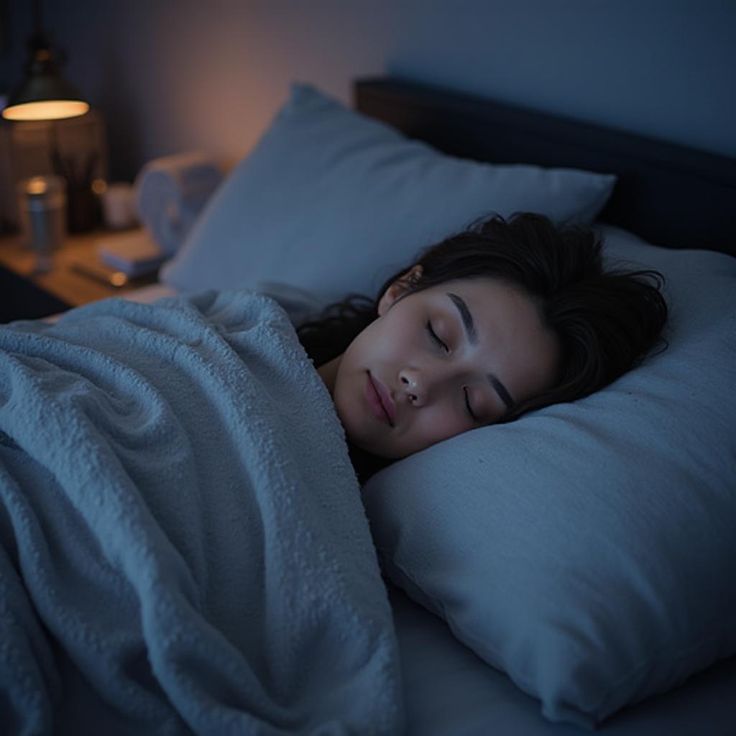
Quality Sleep For Longevity, Imagine: Late at night, you are looking through your phone, promising yourself just one more video. It is one AM before you realize it; you have five hours to get ready.
Each of us has visited there. However, did you know that this apparently benign behavior could be taking years off your life?
Though it’s sometimes the first thing we give up, science reveals that sleep is among the most effective weapons for lifespan.
While diet and exercise often dominate discussions about healthy aging, sleep plays a crucial role in maintaining optimal health. Consider it as the perfect anti-aging potion, one not found in a bottle or needing a prescription.
We will discuss how sleep influences aging in this post and go over doable, scientifically supported strategies to raise the quality of your sleep for a longer, better life.
Getting enough sleep is not only about feeling refreshed when you wake up; it is a process that heals the entire body. During the time that you are sleeping, your brain eliminates toxins, your cells repair themselves, and your immune system strengthens. The same thing happens when you don’t get enough sleep; it’s like skipping oil changes for your automobile; eventually, things start to break down.
Sleep deprivation has been linked to a number of negative health outcomes, including a diminished immune system, cognitive decline, heart disease, and even shorter telomeres, which are protective caps on your DNA that shorten with age. The takeaway here is that if you want to slow down the aging process, you should begin by improving your sleep quality.


Quality Sleep For Longevity, Ever noticed how one poor night of sleep may cause you to seem to have aged five years overnight? This is so because inadequate sleep raises cortisol, the stress hormone, which breaks down collagen, the protein meant to maintain skin firm and young.
Deeper further, regular sleep deprivation accelerates cell aging. Studies show that routinely sleep deprived people have clearly shortened telomeres. Less than six hours of nightly sleep.
Staying late will not help you since telomere length closely ties with lifetime. Not merely about waking up feeling rejuvenated, sleep is a full body healing mechanism.
While you sleep, your brain cleans toxins; your cells heal and your immune system gets more robust. Lack of sleep is like neglecting regular oil changes for your car; ultimately, components start to fail.
Reduced immunity, cognitive decline, heart disease, even shorter telomeres—the protective caps on your DNA that shrink with age—have been linked to sleep deprivation. Starting with better sleep if you want to slow down aging is the lesson here.
Mostly while you sleep, your brain uses its built-in glymphatic system for cleansing. Consider it as a night janitor clearing trash, including beta-amyloid plaques linked to Alzheimer’s disease. Insufficient sleep causes these damaging proteins to accumulate, raising the likelihood of cognitive decline and neurodegenerative illnesses.
The bright news is giving sleep first priority greatly reduces your risk of later in life developing memory-related problems.
If you find it difficult to keep a reasonable weight, sleep could be the lacking element. Lack of sleep alters hormones including leptin and ghrelin, which control hunger and fullness. This imbalance reduces your metabolism and sends you toward sweet, high-calorie foods.
Moreover, studies have linked poor sleep to insulin resistance, a main diabetes risk factor. First priority should be getting enough sleep to help regulate your metabolism and stop further weight increase with aging.
Quality Sleep For Longevity, Knowing how important sleep is to longevity, let’s now look at some easy, scientifically supported strategies to increase it.
Stick To A Consistent Sleep Schedule
Your body enjoys habits. Yes, going to bed and waking up at the same time every day, especially on weekends, helps control your circadian cycle, which facilitates falling asleep and waking up feeling refreshed.
Limit Blue Light Exposure Before Bed
Blue light emitted by screens fools your brain into thinking it is daytime. This reduces the hormone in charge of sleep: melatonin. Steer clear of screens at least one hour before bed to offset this.


Optimize Your Sleep Environment
Your bedroom should be a sleep sanctuary. Here’s how to optimize it:
Mind Your Evening Diet
Blue light emitted by screens fools your brain into thinking it is daytime. This reduces the hormone in charge of sleep: melatonin. Steer clear of screens at least one hour before bed to offset this.
Incorporate Relaxation Techniques
Quality Sleep For Longevity, One of the main sleep disturbances is stress; hence, control of it is essential. Try this.

Early morning natural light exposure helps your body’s internal schedule be more in line, which facilitates nighttime falling asleep. Try to get in the morning at least ten to thirty minutes of sunshine in the morning.
Though timing is important, regular physical activity helps sleep quality. Working too near to bed can have a stimulating effect. For optimal results, try working out first thing in the day.

If this article imparts one lesson, it’s that prioritizing quality sleep not only prolongs your life but also promotes rest.
Good sleep hygiene is clearly important for reducing aging, enhancing cognitive function, and avoiding chronic disorders as well as for increasing immunity.
Therefore, keep in mind that your future self will appreciate you opting for a whole night’s rest instead of sacrificing sleep for another Netflix episode.
Dream sweetly and enjoy your aging.